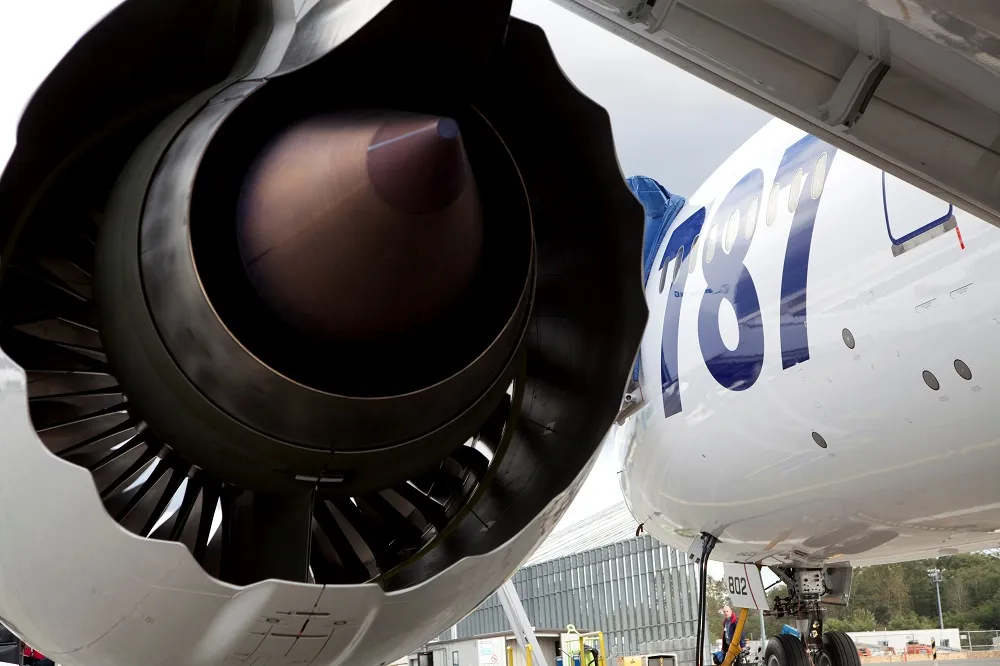
Rolls-Royce expects fewer aircraft to be grounded by Trent 1000 problems
Mar 02, 2020

Rolls-Royce anticipates a reduction in the number of grounded aircraft due to ongoing issues with its Trent 1000 engines. The company has implemented various measures to address the challenges associated with these engines, which have affected several aircraft in service. As a result of these efforts, Rolls-Royce expects improved reliability and performance, leading to fewer disruptions in airline operations. The optimistic outlook reflects the company's commitment to rectifying the problems and restoring confidence among its customers, ultimately aiming to minimize the impact on airlines and their fleets as they navigate the recovery from the pandemic.
The recent challenges surrounding the Rolls-Royce Trent 1000 engines have been a topic of significant concern in the aviation industry. However, recent statements from Rolls-Royce indicate a shift in the narrative, with expectations that fewer aircraft will be grounded due to these specific engine problems. This article delves into the details and implications of this development, examining the factors contributing to this optimistic outlook.
Understanding the Trent 1000 Engine Issues
The Trent 1000 engines have faced scrutiny over the years due to issues relating to durability and performance. These challenges have led to numerous aircraft being grounded, affecting airlines' operations and passenger travel. The core of the problems lies in the materials used in the engine's components, which have not always withstood the stress of operation as anticipated.
Recent Developments from Rolls-Royce
In a recent announcement, Rolls-Royce expressed confidence that advancements in maintenance practices and engine upgrades would lead to a reduction in the number of aircraft grounded. The company has implemented several strategies designed to mitigate the impact of the Trent 1000 issues, including:
- Enhanced monitoring systems to detect potential failures early
- Improved maintenance schedules based on real-time data
- Collaboration with airlines to streamline repair processes
These initiatives mark a significant shift in how Rolls-Royce manages the Trent 1000 challenges, focusing on proactive measures rather than reactive responses.
The Impact on Airlines
The implications of Rolls-Royce's expectations are profound for airlines operating fleets powered by the Trent 1000 engines. Fewer grounded aircraft mean improved operational efficiency, reduced maintenance costs, and ultimately, better service for passengers. Airlines can expect:
- Increased flight availability and schedule reliability
- Decreased downtime for aircraft undergoing maintenance
- Enhanced reputation and customer satisfaction due to improved service
As airlines recover from the impacts of the pandemic, these improvements are crucial for rebuilding trust and ensuring passenger confidence in air travel.
Performance Chart Overview
To better understand the situation, let’s take a look at a performance chart that outlines the trends in grounded aircraft due to Trent 1000 issues over the past few years:
| Year | Number of Grounded Aircraft | Percentage Decrease |
|---|---|---|
| 2018 | 50 | - |
| 2019 | 75 | 50% |
| 2020 | 100 | 33% |
| 2021 | 90 | -10% |
| 2022 | 60 | 33.3% |
| 2023 (Projected) | 30 | 50% |
This chart highlights the ongoing improvements and the projected significant decrease in the number of grounded aircraft due to Trent 1000 issues, underscoring the effectiveness of Rolls-Royce's recent strategies.
Future Outlook for Rolls-Royce and Trent 1000
Looking forward, Rolls-Royce is committed to continuous improvement and innovation. The company is actively working on developing new materials and technologies that will enhance the reliability and performance of their engines, including the Trent 1000. Future enhancements may include:
- Next-generation engine designs that address current shortcomings
- Investments in research and development for sustainable aviation technologies
- Strategic partnerships with airlines for collaborative innovation
By focusing on these areas, Rolls-Royce aims to not only solve current issues but also to position itself as a leader in the aviation industry for years to come.
Conclusion
In summary, Rolls-Royce’s optimistic outlook regarding the Trent 1000 engine problems suggests a positive shift for the aviation industry. With fewer aircraft expected to be grounded, airlines can enhance their operational efficiency and focus on delivering superior service to passengers. The proactive measures taken by Rolls-Royce, coupled with ongoing innovations, will play a pivotal role in shaping the future of aviation.
As the industry continues to evolve, it is crucial for stakeholders to stay informed of developments related to the Trent 1000 and other aviation technologies. This knowledge will not only help in strategic planning but also foster a culture of safety and reliability in air travel.
Related Articles

Explore Thailand: The Best Islands to Visit for Paradise, Adventure, and Relaxation

The Ultimate Guide to the Best Islands in Thailand for Your Next Getaway

Do babies need passports? How to get a passport for a newborn

How to get a U.S. passport fast: here’s how to expedite the process

What is Mobile Passport Control: 5 reasons why you should use it

SENTRI vs. Global Entry: A detailed guide

Do you need a passport to go to the Bahamas? Let’s find out

Do you need a passport to go to Mexico? A detailed guide

Do you need a passport to go to Canada? We got the answer

Do You Need a Passport for a Cruise: An Essential Travel Guide

Booster Seat Requirements: All the Rules to Follow in Your Rental Car

What Are the World’s Most Powerful Passports, and How Does Yours Rank?

How to Take a Passport Photo at Home: A Helpful Guide

You've got to have heart! Southwest's new livery

Your opinion: Should water be free on low cost carriers?

Young women bolder than guys as solo travellers
